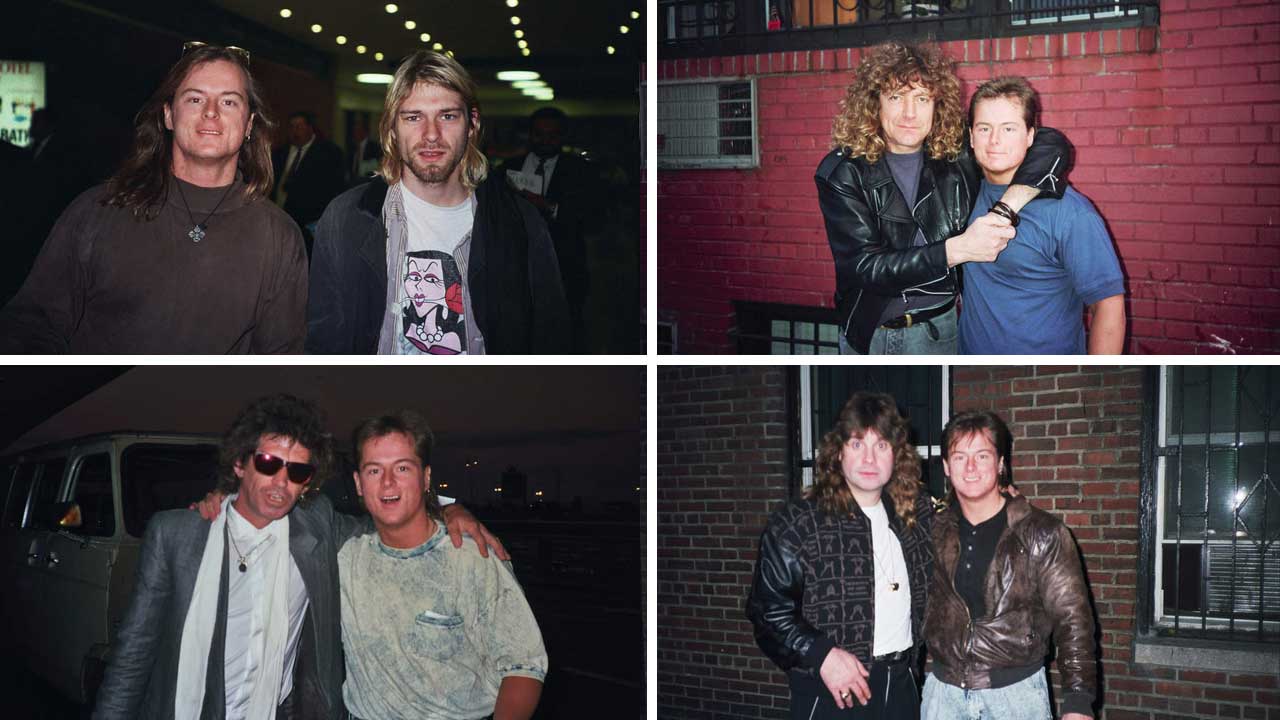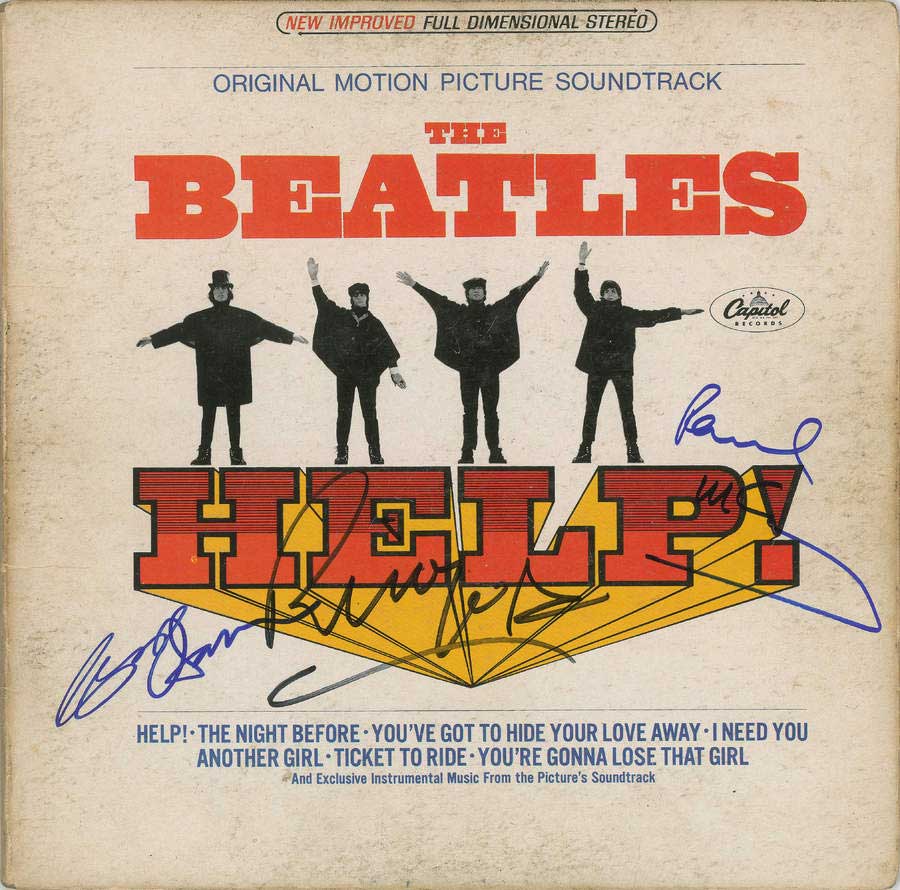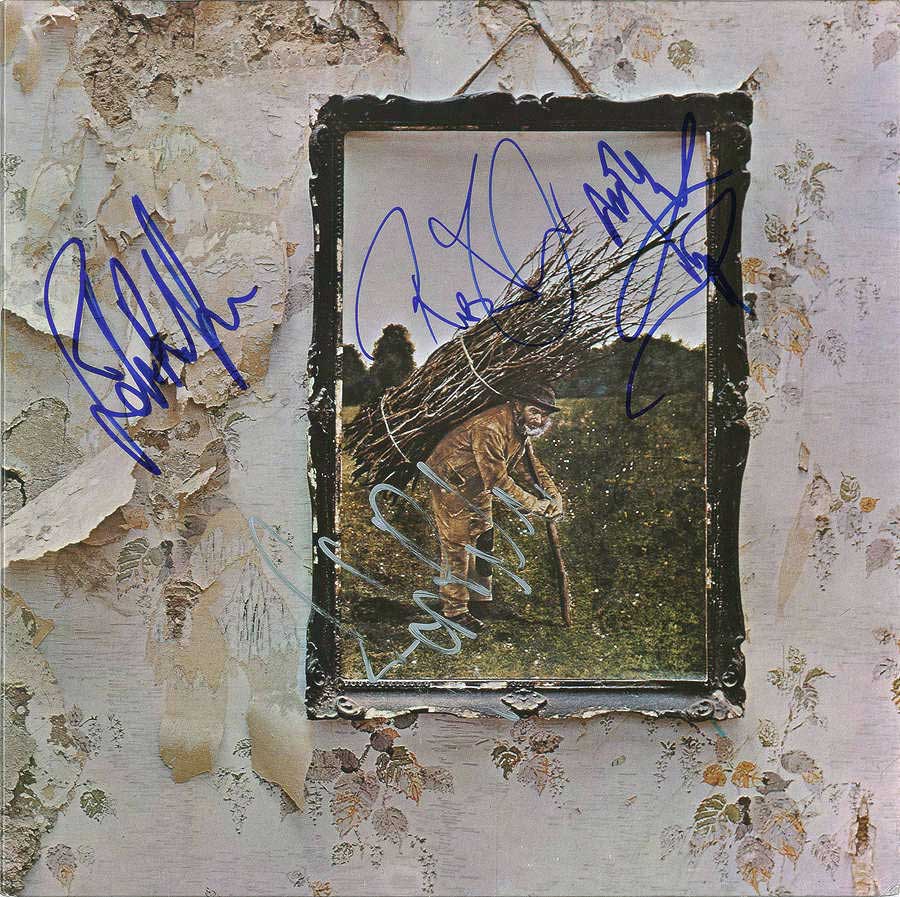
It’s late one night in Manhattan in 1985, and Mick Jagger is trying, and failing, to hail a cab. Darkness fell long ago, and in a way unimaginable today, the Rolling Stone is on the street alone. He paces to the corner and back, not unduly concerned, even as New York’s night-denizens sidle up wanting autographs or cash.
Finally, Jagger turns to the only face he recognises, the only one who’s always here outside the studio, and is now, uniquely, offering to help. “Okay, let’s do it,” he decides, jumping into John Brennan’s car. The rock star and rock’s most relentless autograph hunter are going for a ride.
“It’s almost as clear now as it was then,” Brennan says. “We were on 48th street. My friend sat in the back seat, Mick was in the passenger seat and I drove to his place. And he was comfortable with us, because he had already seen us pretty much everywhere. I’m in space. It was insane. I’m looking at Mick without staring, and we’re talking about U2, Springsteen and Charlie. At the lights, a guy looks over, then back, like, what did I just see? And then we got to his house he said: ‘Good night, guys,’ and went in.”
Brennan once lived for such rare intimacies, pushing himself past the usual fans’ relationship with stars. At New York record stores they called him the Dude, and Captain Sneaks among the tight community of fellow collectors. A strapping New Englander far from the nerdy visual stereotype for such activities, he amassed thousands of autographs, usually with accompanying photos, in a strange sort of career which lasted until selfies and production-line meet-and-greets put a stop to his world.
Brennan surfaced as a public figure himself in 2018, as he started to sell some of a collection which time and rock stars’ deaths is rendering ever more valuable.
“If there’s one thing that would put me on the brink of insanity,” an exasperated Dave Grohl scribbled after Nirvana’s 1993 New Year’s Eve MTV show, “it would definitely be signing autographs all day long.”
Ironically, that inscription increased the value of a photo signed by all the members of Nirvana, its $14,323 price tag eclipsing even a Bob Dylan-signed copy of The Freewheelin’ Bob Dylan, a set of Grateful Dead signatures and a Stones-signed guitar in a landmark auction in May 2018.
Lucrative as it is, though, this is the side-product of an obsession. As Brennan thinks back to other encounters with the Stones on long-gone New York nights, he casts autograph-hunting in a nostalgic, bohemian glow.
“When the Stones were recording, I would see them all the time,” he recalls. “They would go in at ten or eleven at night. The garbage men are coming in the middle of the night. People are closing the restaurants and coming the next lunchtime to open them, and the Stones are still in there recording. And we’re not moving. There really was nothing else. Here we are with the Stones, and nobody else knows. Nowadays, someone would tweet it and people would come in their hundreds.”

Shelton, Connecticut is the sort of American small town that future rock stars yearn to escape from. The Brennans had lived there for generations. But in 1975, music set 11-year-old John on his own, more adventurous path.
“When I found out about rock’n’roll with Kiss and Led Zeppelin, it exploded in my head and opened up everything for me,” he explains. “It was extremely electric. In those days it wasn’t so easy to find out about things. It was like I’d discovered a secret.”
Dragging his parents to see The Song Remains The Same and actually watching Led Zeppelin reinforced his devotion to Jimmy Page in particular. Brennan played guitar, but “didn’t have the patience” to try to emulate his heroes. Instead, like most of us, he found a rock role in “the bench position”. “First I collected records, then slept out for concert tickets,” he recalls. “I had to get one step closer.”
A chance encounter with the B-52s on a 1979 family holiday got him his first autographs. “Then I started trying to meet bands, and traded with people for autographs which I found out were not genuine. That added to the allure, and the idea that I have to go out and get my record signed. Wherever I’d go, I would carry my records. I’d listen to Van Halen and want to play guitar, but that was my outlet: to get my albums signed by my favourite artists.”
The 2018 auction takings suggested this was a prescient desire. Back then it was unique. “I was alone a lot,” he says, “because I was going for bands that people who just collect autographs weren’t even thinking about. The original community of autograph seekers was formed in the mid-80s in the heart of Manhattan. Some came from collecting sports autographs, some from taking pictures. I came from following the band.”
The 150-mile round trip from sleepy Shelton to New York became his daily hobbyist’s commute. The Scorpions’ tour manager got him to drive the band to their gig on the 1982 Blackout tour, then Van Halen’s 1984 tour reinforced the rush. “Once I got to New York and was in the middle of the excitement, I’d go home to school, and come right back,” Brennan says. “Once I had found the city, I never left. It was a current I couldn’t get out of. It was what I loved, and once I got there I never turned around.”

Is ‘addiction’ too strong a word? “Extreme focus,” he first suggests. “Yeah, addiction – sure. It was mostly healthy. It certainly kept me focused, and out of trouble. As a fifteen, sixteen, seventeen-year-old it gave me I guess you could say skills to set goals, and plan. And you have to learn how to contain your excitement. Artists steer away from that.”
His innocent intentions helped.
“I was completely motivated by music. Most celebrities just see people who want to meet them for other reasons. With me it was always going to be some discussion with them about albums. I was an open book.”
The lobby of the Parker Meridian hotel became Brennan’s second home in the 80s, as it was to many of rock’s MTV stars.
“Every way you turned there was something going on,” he says with enthusiasm. “Everybody was there.”
Waiting for Van Halen, he’d watch Duran Duran pursued by screaming girls, Aerosmith check in to carouse. Stepping through the looking glass to their world’s edge, it was everything he’d hoped.
“In those days there was still a lot of partying,” he confirms, “and young bands out in nightclubs all night long. It was New York City before it ‘modernised’. It was a twenty-four-hour thing. It was wild, and I was young.”
The mystery of such an all-consuming lifestyle is: how on earth did he do it – how could a full-time autograph hunter survive?
“I went to college,” he says of his reluctant down time. “And I had occasional relationships, which all suffered because, you know. I was dating my hobby, and trying to date girls at the same time. I was always looking for records, and going to shows. It really was all I cared about. It completely eliminated high school or college frat parties. There were a few friends. I took one who was a Steely Dan fan along with me to meet Donald Fagen, and another to meet Mick Jagger. But this was it.”
Could he hold down a job?
“No significant jobs. Because eventually U2’s coming into town or something. As I got older I started selling records and stuff in magazines. Then when I graduated college, do I find something else to do? But I didn’t know anything else the way I knew this. There was nothing else.”

Brennan’s passionate pursuit has a dark side, embodied by autograph hunting’s anti-Christ, Mark Chapman. John Lennon diligently signed Chapman’s copy of Double Fantasy, only to be repaid in bullets hours later. This was certainly on George Harrison’s mind when Brennan cornered the most elusive then-living Beatle for his signature. “Sure, I’ll do it – so long as you don’t kill me,” the Quiet One responded dryly.
“When I first started trying to meet people, I was blind to all of that,” Brennan admits. “There were a lot of crazy people around for a lot of years. I was in a lot of situations in crowds with people who may have set some alerts with security. Michael Jackson would always come out of a garage or something, but still very few artists tried to avoid crowds in those days. Now, most of them do.”
Brennan’s hide must have been as tough as a rhino’s. But he was further insulated by genuine musical devotion, which meant he had already amassed every Guns N’ Roses record for potential signing, gun-shaped Paradise City 10-inch with holster sleeve and all, when they became perhaps his greatest obsession.
“When I started doing this,” he reminisces, “Van Halen, Aerosmith and the Stones were already super-huge. With Guns N’ Roses, I was in the revolution while it was exploding. It wasn’t like this controlled atmosphere other bands had. The first time I met Van Halen they were a machine, with high-tech security and their own bodyguards. Guns N’ Roses had some of that, but it was chaos.”
He met Slash sharing a cigarette in Chicago, and gathered the rest of the original band’s autographs as they partied across America.
“The thing I identified with most was Guns N’Roses,” he says. “That classic rock, damaging guitar sound, and the chaos.”
Brennan’s music fanaticism also gave him a head start on the Seattle scene, getting to know Jeff Ament and Stone Gossard when Mother Love Bone were a support act. The 90s, though, began the slow decline of the hobby that had been his life.
“The internet and eBay changed everything,” he sighs. “For autographs, eighty per cent saw it as a commodity, and were out for money. Most younger people want selfies instead. Then after the internet took away the sale of music, artists started selling their time at meet-and-greets and packages. But when you meet them, it’s all controlled. It’s not really you and the artist, it’s business, staged.”
No one has Mick Jagger in their car any more. Brennan still talks longingly of crucial David Gilmour autographs he’s missing (and sounds quite miserable when I tell him the former Pink Floyd guitarist is a regular at my local Brighton chippie). But really, that life for him is done. Has anything replaced it?
“Sanity,” he says immediately. “I’ve been raising a family for years.”

Brennan is still a music fan. And his extraordinary collection has become that rare thing: a fan’s legacy.
“For most of my life until now, I’ve resisted selling it,” he considers. “I got the name Sneaks because I didn’t want any attention while I was collecting. Now it’s like: what’s going to happen if I don’t tell my stories? What’s the point?”
Memories preoccupy him more than the possessions that once decorated his youthful “man cave”: the night David Bowie stepped out of the studio to chat one freezing New York night, or a conversation prised out of Dylan.
“So many nights of keeping your head up, and going home with nothing,” he reflects. “I had a long drive back late at night, and a long time to think about it, and I had my music on. That was the drug. The music made me come back the next day. It never would have lasted as long as it did without that foundation."
Items from the John Brennan Autograph Collection are available to buy online. In 2023 he opened an auction house, Eaton & Brennan Auctions, with his partner, Tricia, which specialises in music autographs and memorabilia. The original version of this feature appeared in Classic Rock 253, in September 2018.







